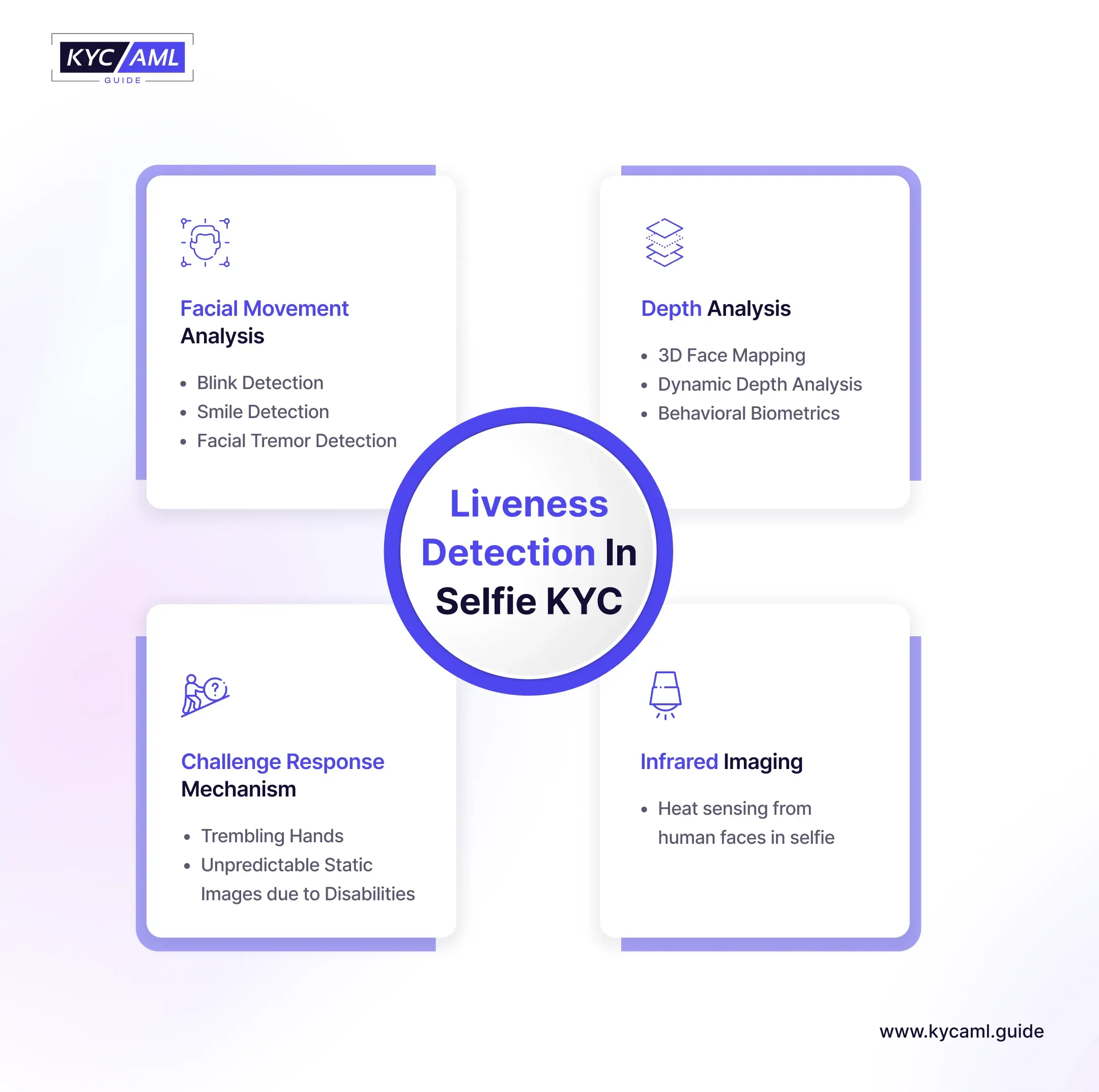Selfie KYC Identity Verification and Its Components
KYC (Know Your Customer) has evolved a lot in recent years. With the widespread adoption of Smartphone technology having high-tech and high-resolution selfie cameras, KYC is seamlessly done and customers can be onboarded remotely. The KYC Tools require customers to upload their selfie images from their smartphones in the app and after verification of their selfie and other information, their onboarding process is completed.
The Major Components of Selfie KYC include the following:
- Document Verification: Customers must upload the scanned identification documents along with their selfies. These documents include an ID Card, Passport, and Driving License.
- Facial Recognition: The KYC Tool has a Biometric Facial Recognition feature that scans the uploaded selfie image and matches the photo with a database of customer identities. This will verify and differentiate between a genuine customer and a suspicious Identity.
- Liveness Detection: Prevention of Identity Spoofing and other fraud is one of the core responsibilities of KYC. Liveness Detection is the mechanism that accurately identifies the fake identities portrayed in an image and detects the signs of spoofing in them.
- Compliance Assertion: Regulatory Compliance guiding the financial activities of banks as well as customers towards Anti-Money Laundering (AML) and Anti-Fraud is one important aspect of eKYC. Liveness Detection in Selfies enhances the ability of KYC Solutions to detect risky persons through different databases.
- User Consent: It is the moral duty of banks, FIs, and KYC Tool providers to ensure transparency with users and inform them about how their data including selfies and other document images will be used.
Liveness Detection in Selfie KYC

| Facial Movement Analysis |
|
| Depth Analysis |
|
| Challenge Response Mechanism |
|
| Infrared Imaging |
|
Also Read: How to Detect a Fake ID? | KYC AML Guide
How Digital KYC Solutions Can Enhance Liveness Detection in Selfie-Based Onboarding?
Firstly, a scalable and dynamic approach to continuously improve KYC Solutions against evolving fraud tactics is necessary. For this purpose, the provided information serves as a knowledge repository where updated information can be added in a well-sorted form to improve the customer onboarding experience. Here, a few things are important to consider:
- Digital KYC Solutions are considered as a tool to detect anomalies, and suspicions in identity verification. Therefore, they have certain limitations in their technologies.
- Every KYC Solution is different in terms of capabilities of accuracy, speed, and scalability.
- It also depends on the customer’s training and how much KYC Solution guides a customer while onboarding. For example, while taking a selfie, usually a customer is guided through audio instructions to tilt the head or maintain a certain distance with the camera.
Also Read: Face Recognition in KYC Identity Verification
The Role of a KYC Technology Buying Consultancy in Bridging the Gap Between a KYC Solution and a Fintech
Imagine a scenario where a Fintech invests a hefty amount in deploying a KYC Solution at the heart of its services and the main goal of this fintech is to make the customer onboarding not only seamless but conduct it remotely. But they are unsure of notions like which KYC Solution guarantees the lowest False Accepts and False Rejects. Also, the parameters for the best KYC Solution are critically important for a fintech to be considered before selecting a KYC Vendor:
- High level of data accuracy and biometric Identity Verification
- User-Friendly Interface of Mobile Application
- Cost-efficiency through distributed data storage (blockchain) and other mechanisms
- Higher Speed and Effectiveness of Liveness Detection, Morphing Detection, and other necessary features.
- Scalability and Integration features for continuous improvements in the KYC Solution
For this purpose, the KYC AML Guide being a premium Consultancy for KYC Technology Buying steers fintech businesses towards excellence by guiding their choices to the best-suited KYC Vendor.





